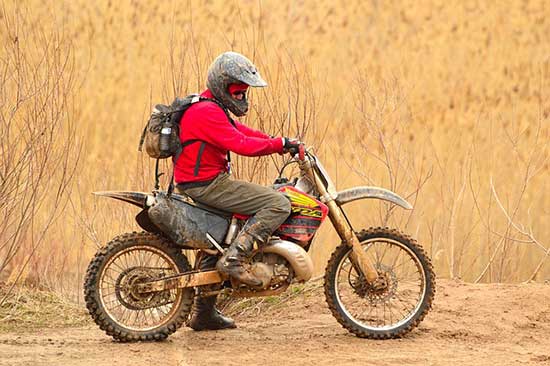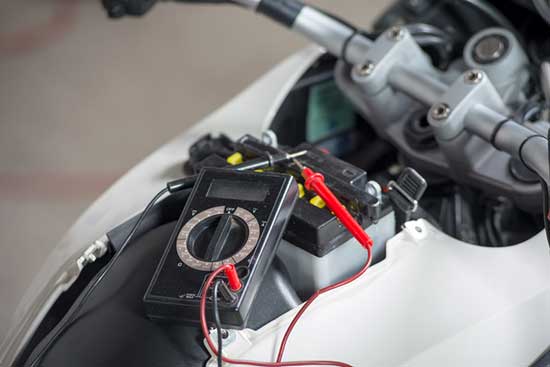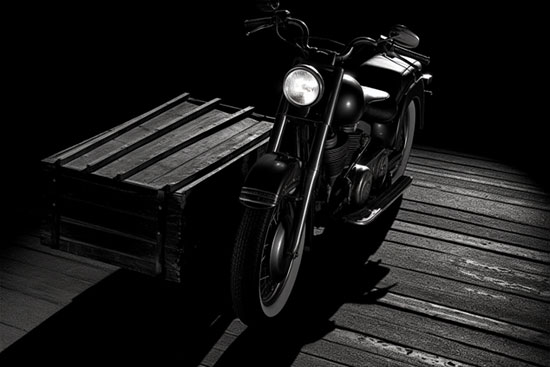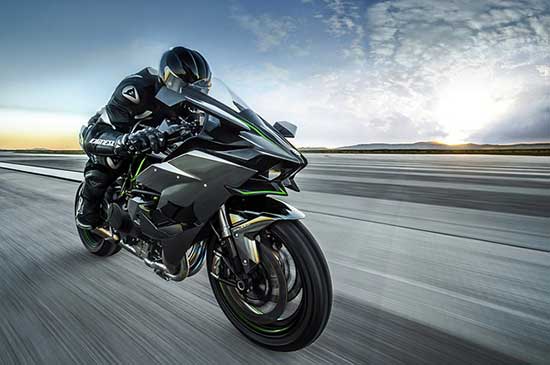Motorcycles, much like their four-wheeled counterparts, come with a myriad of features designed to enhance the riding experience.
One such feature that has sparked ongoing debate among enthusiasts and experts alike is the Anti-lock Braking System, commonly known as ABS.
This system, initially adopted by cars and then later by motorcycles, is designed to prevent the wheels from locking up or skidding, during emergency braking situations.
But does the presence of ABS truly make a difference in a motorcycle? Or is the traditional, non-ABS braking system still the way to go?
Beyond the arguments for and against, it’s important to understand the fundamental differences between ABS and non-ABS motorcycles.
Traditional braking gives riders a raw, unfiltered connection with their machine, while ABS, on the other hand, offers a layer of safety and control that can be particularly beneficial in certain situations.
Contents
Understanding Anti-lock Braking Systems
You’re cruising down the highway when suddenly, you need to brake hard. That’s when your bike’s Anti-lock Braking System steps in, it’s like a guardian angel, preventing wheel lock-up and maintaining your bike’s stability.
The Anti-lock Braking System, commonly known as ABS, is a safety system incorporated in most modern bikes. It works by automatically modulating the brake pressure when it senses imminent wheel lock-up.
The ABS ensures that the wheels do not stop rotating during braking, thereby preventing the bike from skidding and offering the rider better control.
This intelligent system continuously monitors the speed of each wheel. If one or more wheels begin to move considerably slower than the others—a condition indicative of impending lock-up—ABS adjusts the pressure to the brakes to prevent such an occurrence.
This modulation usually happens in rapid cycles, providing you with precise braking without the risk of skidding or falling.
Ultimately, ABS increases your safety on the road, especially during sudden stops or when riding on slippery surfaces.
The Raw Experience of Traditional Braking
Feeling the raw power of traditional braking under your fingertips, it’s an exhilarating experience that’s hard to match.
There’s a certain thrill in mastering the art of modulating brake pressure, negotiating the fine line between maximum deceleration and a potential skid.
The responsiveness of non-ABS brakes allows riders to feel every nuance of the motorcycle’s behavior, gaining a visceral understanding of how their actions directly affect the machine’s reactions.
It’s a relationship that requires skill, practice and a keen sense of awareness.
In contrast to ABS-equipped motorcycles, traditional braking systems provide a more direct connection between the rider and the road.
There are no electronic interventions to modulate brake pressure, which means riders must rely on their experience and skill to avoid locking the wheels.
For many motorcyclists, this raw, unfiltered interaction with their machine is what defines the true essence of riding.
It’s an experience that demands respect and understanding of both the motorcycle and the environment in which it operates, an experience that’s becoming increasingly rare in today’s technologically advanced world.
Evaluating Safety Considerations
While embracing the raw, visceral thrill of traditional braking is undeniably exhilarating, it’s also crucial to consider the safety aspects involved. Non-ABS motorcycles rely solely on the rider’s skill and judgment to control braking.
This can be particularly risky in situations where sudden stops are required or in unfavorable road conditions.
A slight miscalculation or panic can result in a wheel lock-up, a skid, or even a fall. These potential dangers underscore the importance of a rider’s skill level and experience when using traditional braking.
Moving on to ABS-equipped motorcycles, these come with a system designed to prevent wheel lock-up during sudden or hard braking.
This can significantly reduce the risk of skidding and accidents, especially for inexperienced or less skilled riders.
Furthermore, ABS can be a lifesaver in wet or slippery conditions, where traditional braking can be quite challenging.
However, it’s worth noting that while ABS can enhance safety, it does not replace the need for proper riding techniques and judgment.
Ultimately, the choice between ABS and non-ABS motorcycles should depend on a thorough evaluation of one’s riding skills, experience, and the typical riding conditions one encounters.
Impact on Handling and Riding Experience
Navigating the twists and turns of the open road, the handling, and overall riding experience can be greatly influenced by the kind of braking system your two-wheeler boasts.
Motorcycles equipped with ABS (Anti-lock Braking System) are known to offer a smoother and safer ride as it prevents the wheels from locking up and skidding during a sudden brake.
This system continuously monitors the rotational speed of each wheel and modulates the brake fluid pressure to prevent a lockup.
This technology can be particularly beneficial while navigating slippery surfaces or during a sudden stop, thereby enhancing the handling capacity of the motorcycle.
On the other hand, motorcycles without ABS require more skill and experience for effective handling. In non-ABS motorcycles, the rider has full control over the braking system, which can prove to be a double-edged sword.
While this can be a thrilling experience for seasoned riders who prefer having total control over their machine, it can pose a risk for novice or less experienced riders.
They might find it challenging to maintain control during a hard brake, potentially leading to a wheel lockup and skid.
Therefore, the impact of ABS on handling and riding experience largely depends on the rider’s skill level and riding conditions.
Making an Informed Decision
When it’s time to choose your two-wheeler, considering the braking system can be a critical factor, and understanding your own riding skills and conditions can help determine if an anti-lock feature is a necessity or a luxury.
If you frequently ride in rainy or icy conditions, or on surfaces that may be slick or loose, the anti-lock braking system (ABS) can provide an added level of safety by preventing the wheels from locking up during braking.
On the other hand, if you’re an experienced rider with good braking technique, you might prefer the feel and control of a non-ABS bike.
Some riders also prefer non-ABS for off-road riding, where the ability to lock the rear wheel can be useful.
However, it’s important to remember that even the most skilled riders can be caught by surprise in unexpected situations. ABS can offer an additional safety net in these cases, potentially preventing accidents and injuries.
Furthermore, some insurance companies offer discounts for motorcycles with ABS, which is a factor worth considering.
Ultimately, the choice between ABS and non-ABS motorcycles should be based on an honest assessment of your riding skills, the conditions you’ll be riding in, and your personal comfort and safety preferences.
Some Asked Questions
What is the cost difference between ABS and non-ABS motorcycles?
The cost difference between motorcycles equipped with Anti-lock Braking System (ABS) and those without varies.
Typically, ABS models tend to be more expensive, with the price difference ranging from a few hundred to thousands of dollars.
How does the maintenance of ABS motorcycles compare to non-ABS motorcycles?
Maintenance of ABS motorcycles may be slightly higher due to the complexity of the system. However, this is offset by the increased safety and potentially lower repair costs from avoiding accidents.
Are there specific weather conditions in which ABS motorcycles perform better than non-ABS?
Yes, ABS motorcycles generally perform better in wet or slippery conditions. The Anti-lock Braking System prevents wheel lock-up, providing more control and stability, which is especially beneficial in such weather conditions.
How does the ABS system affect the fuel efficiency of the motorcycle?
The ABS system in motorcycles doesn’t directly affect fuel efficiency. It primarily enhances safety during braking, preventing wheel lock-up. Fuel consumption is largely influenced by engine performance, riding style, and maintenance, not braking systems.
Can a non-ABS motorcycle be upgraded to an ABS motorcycle?
Yes, a non-ABS motorcycle can be upgraded to an ABS motorcycle. This typically involves installing an ABS modulator, ABS sensors, and corresponding wiring. However, it’s a complex process and should be done by professionals.
Conclusion
In conclusion, choosing between ABS and non-ABS motorcycles isn’t simply black-and-white. It’s a blend of your preference, riding style, and priority on safety. You’ve gotta weigh the unfiltered thrill of traditional braking against the reassuring safety net of ABS.
Ultimately, it’s your decision, and there’s no right or wrong choice. Just make sure it’s an informed one, balancing your desires with the realities of the road. Stay safe, and happy riding!






